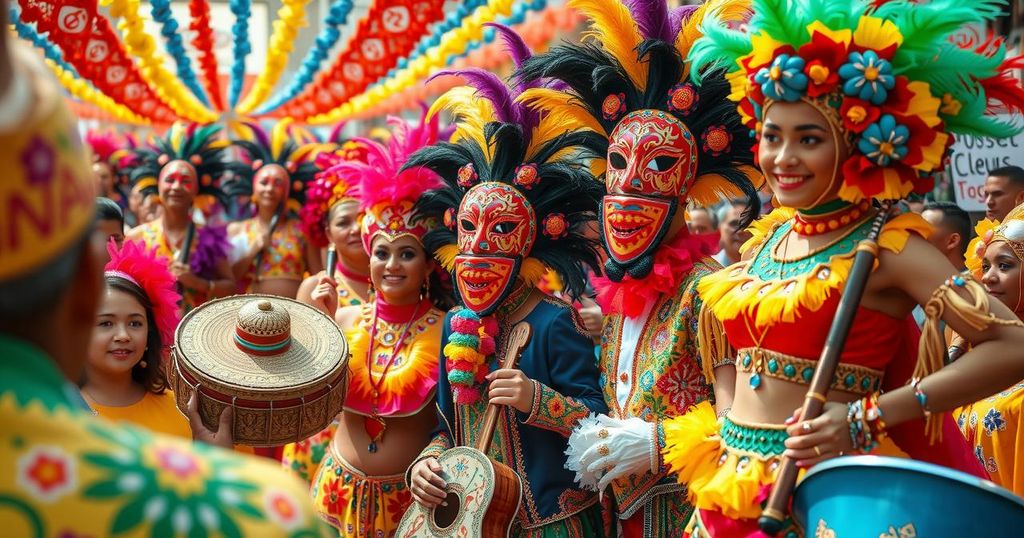Vulgar Fraction, led by Robert Young, represents a political resistance in Trinidad’s Carnival through artistic expressions that critique exploitation and commercialization. Their upcoming theme “Kongo Déy” highlights the historical significance of Carnival as a space for cultural reclamation and dissent, drawing on a legacy of resistance established by enslaved Africans. Young’s journey and philosophy emphasize the importance of maintaining the essence of Carnival amidst rising commercial pressures.
Vulgar Fraction, led by costume designer Robert Young, stands out during Trinidad’s Carnival with substantial symbolism in their costumes. They utilize unique materials, such as shredded banana trees and cardboard cutouts, to differentiate their band from the prevalent glitzy representations of contemporary celebrations. This distinctive approach reflects a deep historical context, drawing from the resistance shown by enslaved Africans in the 18th and 19th centuries, who utilized festive occasions to challenge their oppressors, reclaiming their cultural space through music and dance.
For Robert Young, political resistance plays an integral role in his designs. Young notes, “Kongo Déy,” the theme for the 2025 Carnival, aims to criticize the ongoing exploitation of the Congo region. The increasing commercialization of Carnival significantly detracts from its original essence, which many tourists and locals overlook in favor of a more hedonistic experience dominated by alcohol and popular soca songs. Young incorporates his upbringing, influenced by labor activists, into his art, emphasizing Carnival as a platform for political discourse and cultural critique.
Young’s journey into mas-making began in his youth, when his mask-making efforts in school garnered much attention in his village. His experiences with renowned Carnival artist Peter Minshall shaped his rich understanding of the craft and its ability to convey complex socio-political messages. Young formed Vulgar Fraction in the late 1990s as a collective of like-minded individuals seeking to challenge the increasingly branded nature of Carnival, opting instead for a more authentic expression of creativity and resistance.
In conclusion, Robert Young and Vulgar Fraction embody the spirit of resistance and political expression in Trinidad’s Carnival through their unique costumes and themes. Their commitment to preserving the cultural and historical significance of Carnival challenges the modern commercialization that overshadows its roots. Young’s insights illuminate the connection between art and socio-political discourse, reinforcing that Carnival remains a vital platform for critique and celebration in Trinidad and Tobago.
Original Source: nacla.org




